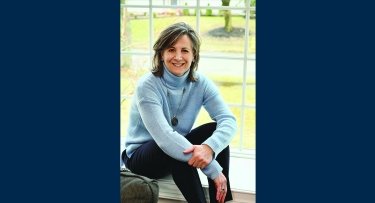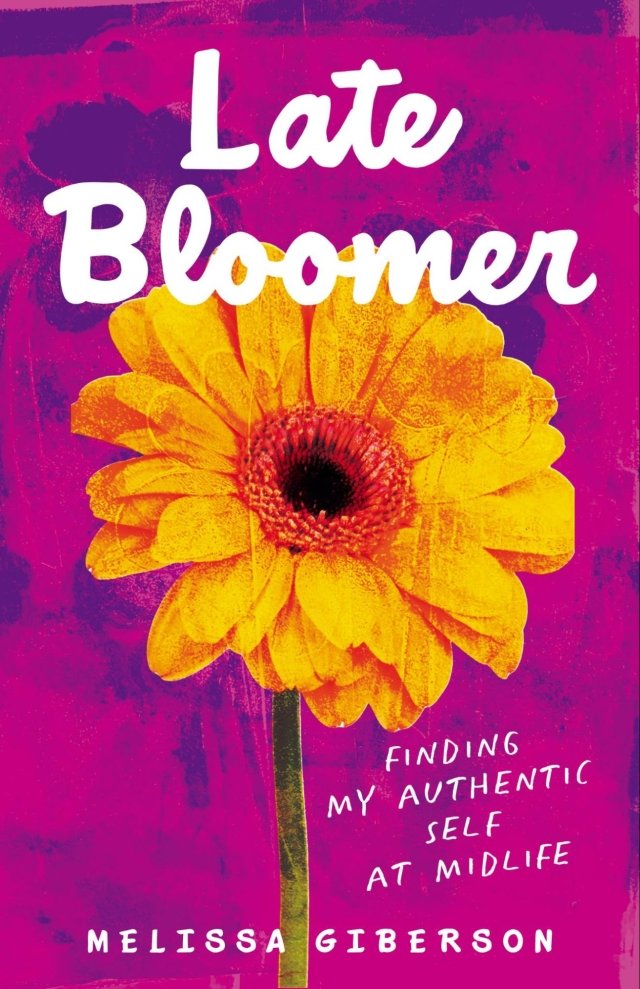New Memoir Chronicles Mercy Alumna's Journey to Authenticity

In LGBTQIA+ culture, a late bloomer refers to someone who awakens to their sexual orientation after years of conforming to societal expectations. Being their authentic self can mean uprooting their life and the lives of those they love.
Mercy College alumna Melissa Giberson ’99 has written about her own awakening that took place when she was in her 40s. The profound change in her life’s trajectory was both difficult and exciting. Hoping to share her story with others who may be questioning their identity, Giberson’s memoir, titled “Late Bloomer: Finding My Authentic Self at Midlife,” will be released on August 8.
Married and living in a New Jersey suburb with two children, Giberson was fully immersed in a life she believed to be her destiny. But certain experiences and realizations led her to question those assumptions. “When you start to question who you truly are, you can’t just hit pause on your husband, your children and your career,” she said. Nevertheless, after a period of deep and painful reflection, Giberson understood that not only was she gay, not heterosexual as she had believed all her life, but that living more authentically would require cataclysmic changes. She said, “I hardly understood what was happening, but I knew there would be consequences." Painful consequences, both for her and for those she loved most dearly.
Also in living more authentically, Giberson worked to shape a career that fulfilled her passion to make a difference. Upon her college graduation, she worked as a social worker in a not-for-profit agency but after five years the organization lost its funding, and she was unemployed. She then enrolled in Mercy’s Occupational Therapy Program, redesigned at the time for nontraditional students. She felt at home in the weekend classes, surrounded by others like herself — slightly older students with responsibilities and postponed dreams. “It was nice to be around people who had life experiences under their belt,” she recalled. “And because I’d made sacrifices to be there, I literally put everything I had into my studies. To this day I hold Mercy very dear to my heart.”
The supportive environment at Mercy College led Giberson to form several relationships that continue to nourish her. “One of my professors, Joan Sullivan, not only became a mentor, but she also offered me a job in her practice,” Giberson said. “Her kindness and support helped me choose my specialization as a hand therapist. I could never thank her enough.”
Although becoming an author wasn't a part of the plan, during the pandemic Giberson found writing her experiences to be therapeutic. “When I was first discovering who I was, I found other people’s stories so validating,” she recalled. “I’m grateful that I could pay it forward now. I hope it can help others going through similar situations.”
Today, Giberson is grateful that her children, now 21 and 23, have a strong relationship with their father and with each other. She’s proud to share her true self with them, as well as her connections to the LGBTQIA+ community. “I still remember my first Pride parade,” she said. “I went down to New York City with a support group from Connecticut. It was the first time for several of us. I’ll never forget what it felt like to be surrounded by thousands of people, seeing their pride and how invested they were in this community that now included me.”
She added, “We all have a universal need to feel loved, to feel like we belong. Despite legislation by those who are trying to erase this community, my conviction to stand tall and proud in this community gets stronger every day.”
In thinking about current students, or anyone who may be searching for authenticity in their own lives, she shared this advice: “We can do our best to plan our lives, but it’s better to stay open. We never know when new information might cause us to recalibrate the path that we’re on. Change is scary, but living a more authentic life is always worth the challenge.”

